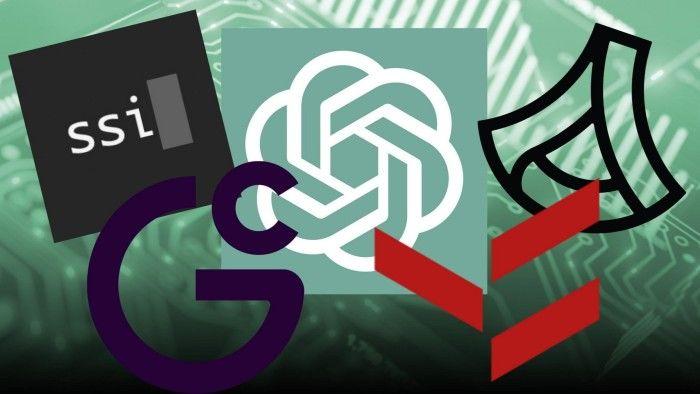AI Startups Achieve Rapid Revenue Growth, Outpacing Traditional Tech Companies
2 Sources
2 Sources
[1]
AI start-ups generate money faster than past hyped tech companies
Artificial intelligence start-ups are making revenues more quickly than previous waves of software companies, according to new data that suggests that the transformative technology is also generating strong businesses at an unprecedented rate. According to an analysis of payments information from fintech group Stripe, top AI groups are reaching millions of dollars in sales within a year -- far faster in a start-up's life cycle than comparable non-AI tech groups. The findings come as investors raise questions about the economic benefits of generative AI and likely returns on Big Tech's projected trillion-dollar investment into computing infrastructure to support the technology over the coming year, However, the data indicates that young AI companies have more momentum that other highly-hyped tech start-ups from past eras, particularly in the "software-as-a-service" category. Stripe, itself a $65bn Silicon Valley juggernaut, pulled data on annualised revenues for the 100 highest-grossing privately held AI companies using their payments platform as of 31 July 2024, compared with a comparable cohort of promising SaaS start-ups as of July 2018. Stripe's customers include OpenAI, Anthropic, Mistral, GitHub and Midjourney, among many other of the most high-profile AI groups. The AI start-ups in the cohort took a median 11 months to hit $1mn in annualised revenue after their first sales on Stripe, compared with 15 months for the previous generation of SaaS companies, the data showed. AI start-ups that have scaled to more than $30mn in annualised revenue achieved the milestone in 20 months -- five times faster than past SaaS companies. However, a report by Goldman Sachs this month has raised concerns about the profitability of AI businesses given "the AI winners of today are no longer capital-light businesses", referencing the significant costs required for computing infrastructure to run and train AI models. The Stripe data reflects how AI start-ups -- many of which are the latest incarnation of SaaS businesses -- are adapting to these market dynamics by building experimental products that customers are willing to pay for. ChatGPT, OpenAI's AI chatbot which was launched in November 2022, became the fastest-growing consumer application in history, when it hit 100mn users within two months of launch. OpenAI created a subscription service for businesses to access ChatGPT that has helped its revenues to reach $3.6bn on an annualised basis, according to people with knowledge of the group's finances. However, the company is also burning through well over $5bn a year as it invests in training new models. "Unlike past generations of software companies, AI companies pay substantial compute costs straight out of the gate, so are under pressure to build monetisation faster," said Emily Sands, head of information at Stripe. The demand for generative AI -- software that can generate text, code, images, audio and video, among other multimedia -- is also global. According to the Stripe data, about 56 per cent of AI companies' revenues came from overseas. This demand has benefited AI image and audio-generating groups such as London-based unicorn company ElevenLabs which makes AI voice software and German AI language translation venture DeepL. "In countries including Singapore [and] Iceland, we see more than 3 per cent of the population actually purchasing from these top 100 AI companies," said Sands. "It's a really globally scaled phenomenon." Stripe itself is currently training AI models on its voluminous data which includes more than $1tn a year across billions of transactions and millions of companies, in order to build more personalised checkout and payment processes, The speed of monetisation is a reflection of start-ups' ability to put out new products and features built on top of rapidly-changing AI models from the likes of OpenAI, Anthropic, Google and Meta, which form the foundation of applications including like transcription and coding assistants. Byron Deeter, a partner at Bessemer Ventures, which invests in SaaS companies, said the problem with bigger software companies was their older tech architectures and inherent slow-moving nature, while start-ups had a proposition to improve productivity quickly. "We're seeing lots of [AI] companies going from zero to tens of millions of dollars [in revenue] in a couple of years," said Deeter.
[2]
Stripe data shows AI startups scaling to $30M revenue in 20 months
AI startups are evolving far beyond the hype, turning into significant revenue generators at an unprecedented speed. According to fresh data from Stripe, a major player in fintech, and a report by Financial Times, top AI companies are hitting financial milestones faster than their software predecessors. That analysis of data collected by Stripe gives evidence that leading AI startups are taking as little as 11 months to achieve $1M in revenue when calculated annually, considering that they had not only sold their products and services for the first time on the platform but had also started to achieve the target after those months. For this purpose, previous generations of software-as-a-service (SaaS) firms acquired 15 months to accomplish a comparable scope of income. This shorter road to wealth indicates the increasing need for products and services anchored on the artificial intelligence technology since they are already turning out to be key in fields such as health and business. AI companies aren't just accelerating to their first million -- they're scaling even faster to $30 million in annualized revenue. On average, AI startups reached this milestone in just 20 months. Compare that to SaaS startups from earlier tech waves, which took significantly longer. This speed highlights how AI's potential to transform industries has translated into immediate consumer and business interest, driving quicker monetization. Despite this impressive revenue growth, profitability remains a challenge for many AI companies. While some, like OpenAI, have generated billions in annualized revenue, they're also burning through large amounts of cash to train and maintain AI models. For example, OpenAI, despite earning $3.6 billion annually from its services like ChatGPT, spends well over $5 billion a year on computing infrastructure. This high cost structure is a key difference between AI companies and earlier software businesses, which often had fewer upfront operational costs. It is not just that the desire for generative AI is not limited to Silicon Valley or comparable tech meccas. Data from Stripe also shows that 56% of revenues of AI companies are generated from foreign markets. This global adoption is pushing AI companies to innovate and scale faster, driving their revenue growth. While the economic promise of AI is clear, questions about long-term profitability remain. Stripe's data shows that AI startups are adapting by building experimental products that quickly attract paying customers, even as their operating costs remain high. In this sense, AI companies may be the new version of SaaS businesses, but with heavier upfront investments in technology and infrastructure. This desire for generative AI is not limited to Silicon Valley or other large tech centers either. Stripe has found that over 50% of AI firms' income sources are international Use the worldwide demand for AI but adjust it to the local market. To scale, DeepL and ElevenLabs have localized content for their consumers in different cities, based on regional language translation and voice tools. This holds the truth where the solutions give that extra edge depending on the regions of the world you adapt them.
Share
Share
Copy Link
AI startups are experiencing unprecedented growth, reaching $30 million in revenue within 20 months. This rapid scaling surpasses traditional tech companies and highlights the transformative impact of AI on the business landscape.

AI Startups Demonstrate Exceptional Growth Trajectory
In a groundbreaking revelation, data from Stripe, a leading online payments company, has shown that artificial intelligence (AI) startups are achieving remarkable revenue milestones at an unprecedented pace. These AI-focused companies are reaching $30 million in annual revenue within just 20 months of their inception, a feat that significantly outpaces their predecessors in the tech industry
1
.Comparative Analysis with Traditional Tech Companies
The growth rate exhibited by AI startups is nothing short of extraordinary when compared to traditional tech companies. For context, it took Facebook approximately four years to reach the $30 million revenue mark after its founding in 2004. Uber, another tech giant, required about three years to achieve the same milestone following its launch in 2009
1
.Factors Driving Rapid AI Startup Growth
Several factors contribute to the accelerated growth of AI startups:
- Increased adoption of AI technologies across industries
- Substantial venture capital investments in the AI sector
- The ability of AI solutions to address complex business challenges efficiently
Impact on the Startup Ecosystem
The rapid scaling of AI startups is reshaping the startup ecosystem. Stripe's data indicates that these companies are not only growing faster but also achieving profitability more quickly than their predecessors. This trend is attracting increased attention from investors and entrepreneurs alike
2
.Related Stories
Challenges and Considerations
Despite the impressive growth, AI startups face unique challenges:
- Ethical considerations surrounding AI development and deployment
- Regulatory scrutiny as AI technologies become more prevalent
- The need for continuous innovation to maintain competitive advantage
Future Outlook for AI Startups
As AI continues to evolve and integrate into various sectors, the growth trajectory of AI startups is expected to remain strong. Industry experts anticipate further disruption across industries as these companies scale and mature
2
.The unprecedented growth of AI startups marks a significant shift in the tech industry landscape, potentially heralding a new era of innovation and economic impact driven by artificial intelligence technologies.
References
Summarized by
Navi
Related Stories
AI Startups Surge: Record Investments and Diverse Applications Across Industries
02 Aug 2025•Startups

AI Startups Surge: Investors Navigate the Booming Landscape of AI Applications
14 Mar 2025•Technology

AI Frenzy Fuels Record-Breaking Venture Capital Investments in US Startups
10 Mar 2025•Business and Economy

Recent Highlights
1
Google Gemini 3.1 Pro doubles reasoning score, beats rivals in key AI benchmarks
Technology

2
Meta strikes up to $100 billion AI chips deal with AMD, could acquire 10% stake in chipmaker
Technology

3
Pentagon threatens Anthropic with supply chain risk label over AI safeguards for military use
Policy and Regulation





